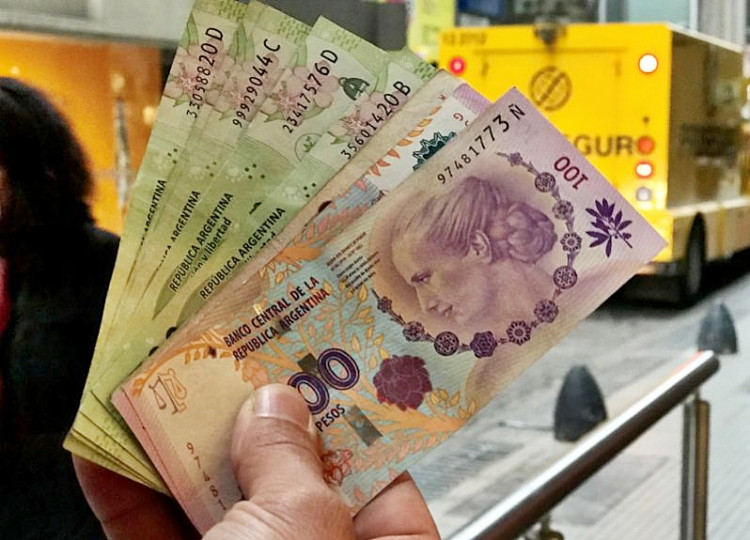The beleaguered Argentine peso, one of the worst performing currencies in the world, crashed to record lows on news the government had asked the International Monetary Fund (IMF) for the early release of a $50 billion loan.
In addition to the IMF loan, the Argentine government also raised interest rates to 45 percent in a frantic attempt to put a brake on the peso's unrelenting slide and to curb inflation, which now stands at 25.4 percent. The new loan request, however, is stoking fears among investors who worry Argentina might soon default as it struggles to repay its massive government debt.
The peso collapsed another 15 percent to sink to 39 pesos against the U.S. dollar on Thursday morning, it's biggest one-day decline since the currency was left to float in December 2015. The peso fell more than seven percent on Wednesday.
The Argentine peso is now more than 45 percent lower against the dollar so far this year. Its continuing weakness has been a key factor in Argentina's 25.4 percent inflation rate and the steady weakening of the economy. Argentina's economy is "likely to contract this year," said experts.
The Central Bank of Argentina yesterday announced an increase in the number of reserves banks have to hold, or the reserve requirement ratio, in an attempt to bolster the endangered peso and put some muscle into fiscal policy. Rates were driven upwards by 15 percentage points to 60 percent from 45 percent because of the peso's collapse.
Argentina now has the world's highest interest rate levels. The central bank promised not to lower the interest rate until December, at the earliest. Emerging markets reacted to the peso's plunge by falling in tandem. Yields on Argentina's 100-year bond issued in 2017 rose to its highest level yet at 9.859 percent overnight.
In light of the escalating financial crisis gripping the Argentine economy, the IMF said it will look to "revise the government's economic plan with a focus on better insulating Argentina from recent shifts in global financial markets."
It said its rescue plan for Argentina includes stronger monetary and fiscal policies and a deepening of efforts to support the most vulnerable in society, namely the poor.
Some financial experts, however, say it's unclear if any of the IMF's moves now will be enough to stabilize Argentina's finances amid the persistent reserve drain as a result of the pesos' enduring weakness. They also point to the fact that the world's highest interest rate levels plus backing from the IMF have both failed to significantly improve market sentiment.
The peso's collapse comes two weeks after a currency crisis savaged the Turkish lira, which re-ignited fears about the viability of all emerging markets. The lira fell to a two-week low on Wednesday after Moody's downgraded 20 struggling Turkish banks.






